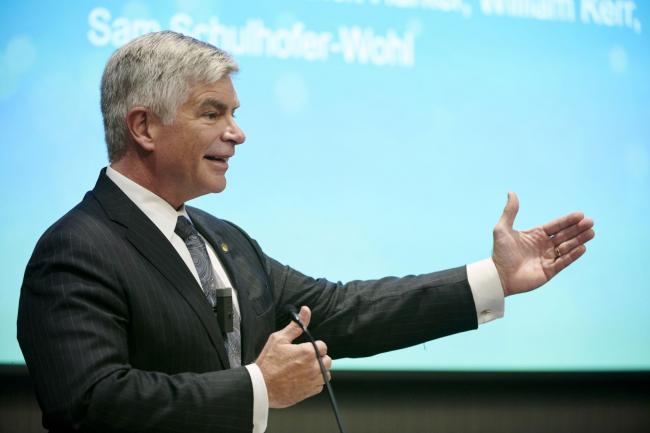(Bloomberg) -- Federal Reserve Bank of Philadelphia President Patrick Harker said while he believes the central bank has more work to do to reduce inflation, policymakers are getting closer to having rates restrictive enough to return price gains to a stable level.
“In my view, we are not done yet… but we are likely close,” Harker said in a speech Tuesday at La Salle University. “At some point this year, I expect that the policy rate will be restrictive enough that we will hold rates in place and let monetary policy do its work.”
Harker spoke after data showed consumer prices climbed a higher-than-expected 6.4% in January from a year earlier, far above the Fed’s 2% goal, which is based on a separate measure. He didn’t directly address the fresh data in his prepared remarks, though other officials speaking Tuesday said the figures may support a higher peak level for interest rates than previously expected.
Read more: Fed Officials Float Even Higher Rates After Brisk Inflation Data
The Fed increased its policy rate range by 25 basis points on Feb. 1 to a range of 4.5%-4.75% and promised ongoing rate hikes to counter high inflation. Traders now are pricing in quarter-point increases at the March and May policy meetings, and about a 50% chance of another one in June after Tuesday’s data. Fed officials will update their forecasts next month.
“Rates are now at a level that allow us to slow down and proceed cautiously and, to my mind, the days of us raising 75 basis points at a time have surely passed,” Harker said. “Just at the last meeting, I voted for a hike of 25 basis points — what some would call slow but actually is closer to cruising speed when it comes to tightening.”
Harker said it was “encouraging” that there are some signs inflation is cooling, adding, “we are finally starting to see steady progress bringing inflation down across an array of goods.”
He also touted the resilience of the labor market, while predicting that unemployment will rise slightly to a peak that’s “modestly above” 4% this year.
“It’s an underrated advantage that the Federal Reserve is taking on inflation from a position of such labor market strength,” he said.
©2023 Bloomberg L.P.

